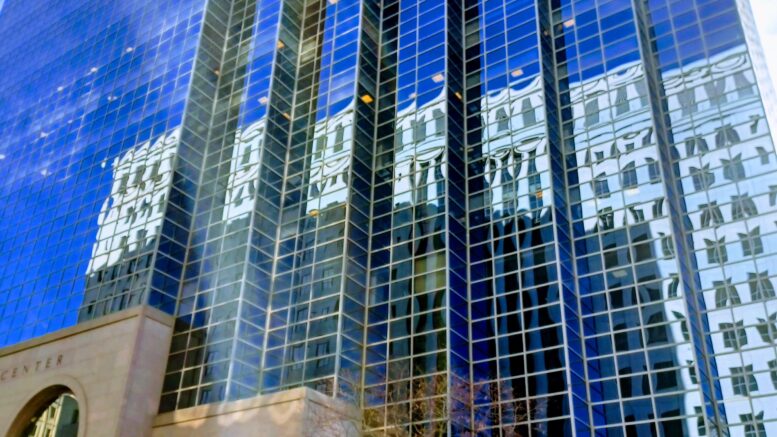Faced with the increasing likelihood of having to contend with a tax-revenue cap initiative on the November ballot, the appointed Commission on Property Tax pivoted after five months of talks Friday and decided to recommend its own, slightly higher cap.
Days after Sen. Chris Hansen floated a draft bill with tax reductions for commercial and residential properties but only a soft cap on revenue increases, the heads of the Colorado Chamber of Commerce and Special District Association of Colorado offered a new plan. The proposal, which drew wide support from commission members, would cap the growth of statewide property-tax revenues at 6% a year with some exceptions while keeping intact the tax-assessment cuts for houses and commercial buildings offered in the first draft.
The message from backers of the plan was clear: If the commission can’t assure voters that scenarios like this year’s substantial spike in property-tax bills won’t happen again, those voters will put into place a 4% cap on property-tax revenue from Advance Colorado. Under plans floated by that fiscally conservative organization and Colorado Concern, the cap would be inflexible and require diversion of state funds for local-government backfill, and both backers and critics believe it’s in a good position to pass.
What the cap and plan would entail
So, Colorado Chamber President/CEO Loren Furman and SDA CEO Ann Terry proposed to the commission a plan that includes a 6% cap on the annual growth of property-tax revenue to local governments, as the state government does not have a property tax. The cap would not impact school districts, would exempt anticipated funding that is dedicated to bond repayment and other voter-approved services and would apply only to existing properties, allowing for increased revenue from new property.
The plan also would include tax-assessment reductions for residential and commercial property. The 29% nonresidential rate would fall gradually to 25.5% by 2029, and while the statutorily allowed 7.15% rate for homeowners would remain, owners would be allowed to deduct 10% of homes’ actual value, up to $75,000, to determine assessed value.
That plan also likely will include a one-year extension of the assessed-value reductions offered last year — $55,000 for residences and $30,000 for nonresidential properties — and potentially other new aids, like the ability to pay property-tax bills in monthly installments. Ultimately, the legislators who sponsor the bill coming from the commission will decide on the exact details, but Hansen confirmed to The Sum & Substance after Friday’s meeting that there is enough support to include a cap that does not impact schools.
“It gives a good combination of tax relief and strategy and sends a message that we still care about our local governments, residents and services,” said Terry, whose association includes some 2,600 districts funding water systems, libraries, fire protection and more.
Immediate and long-term property-tax relief
However, even adding a hard cap does not seem to be enough to get Advance Colorado to back away from its plan with Colorado Concern to take its measure instituting a 4% cap to the November ballot. In an email to The Sum & Substance, Advance Colorado President Michael Fields said the 6% property tax wouldn’t cover half the bill — specifically, the half going to school districts — and has other holes in it.
“We are planning on moving ahead with our two measures — the 4% cap and a permanent cut to the rates,” Fields wrote.
Extending existing assessed-value reductions will cost local governments $600 million in anticipated revenue and will require legislators to backfill $200 about million into school financing, according to an estimate from the nonpartisan Legislative Council. Commissioners did not determine on Friday how they will look to counties and special districts for any anticipated revenue increases they don’t receive because of these extensions, though that is likely to be addressed with the bill’s coming introduction.
There also was little talk about where the funding would come from for the continued property-tax breaks, though Rep. Chris DeGruy Kennedy, D-Lakewood, said that the bill likely would knock the state’s reserve account down from 15% of its general fund to 13%. Commissioners steered clear of any suggestion that they would take the funding out of Taxpayer’s Bill of Rights refund checks, knowing that would create widespread opposition among legislative Republicans, commission members and possibly Gov. Jared Polis.
Details beyond cap still being ironed out
The final commission bill may or may not include other suggestions supported by many members, including expansion of the property-tax deferral program to anyone facing higher bills and separation of tax assessments for schools and for all other governments. Several members suggested that because the impact of some of those proposals could be significant, they should be studied before being implemented, thus allowing the bill to be all about property-tax breaks.
Legislators created the commission during a November special session that was called after voters rejected Proposition HH, a Democrat-backed initiative that sought to offer property-tax relief in exchange for a lifting of the TABOR revenue cap. The 19-member commission — comprised of local-government officials, educators, business representatives and state officials — has sought since then to figure out how to avoid the spikes that state residents and business leaders experienced last year in property taxes, when home values rose an average of 40% across Colorado.
While the commission was able to put months of thought into its proposal, legislators will debate it over a 10-day period that will be crammed with controversial issues, as they must adjourn the 2024 regular session no later than May 8. Other issues still on the docket include sweeping increases in air-quality regulation, a package of bills to address the state’s affordable-housing crisis, potential employer regulations around in-office speech and wage theft and a workforce-development package.
